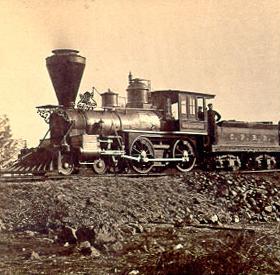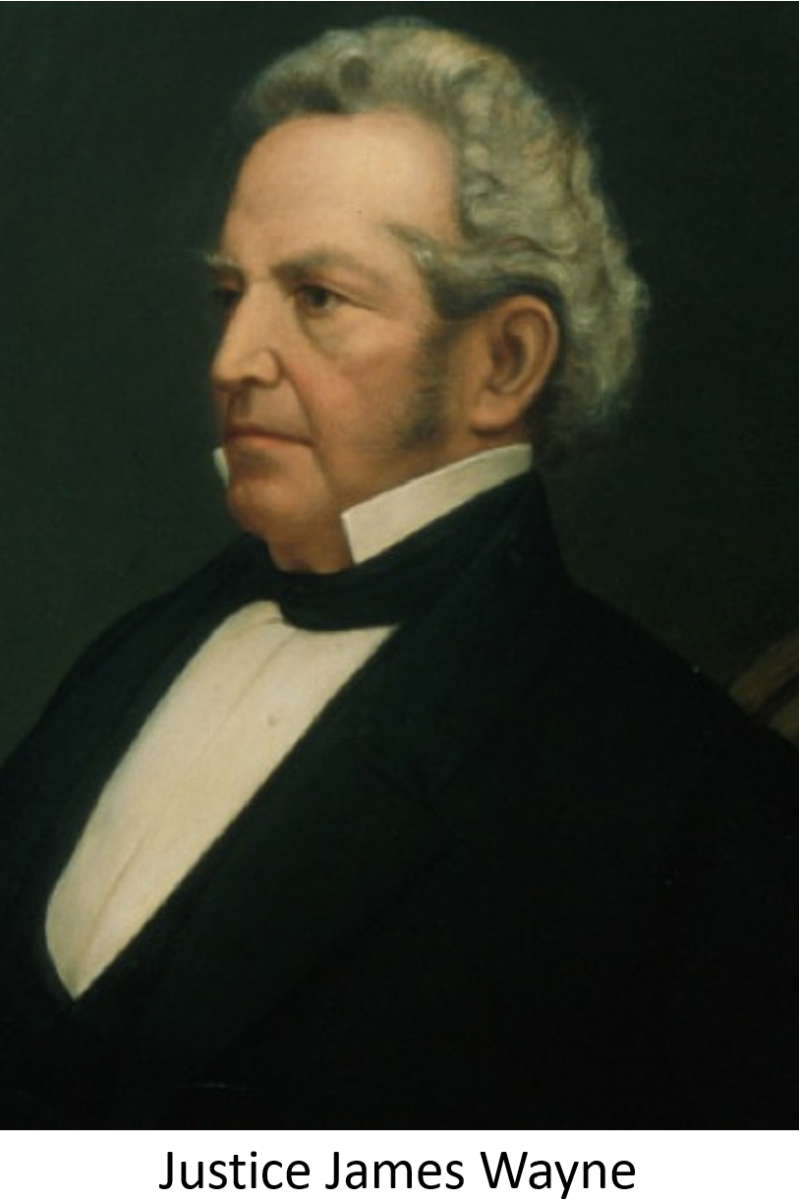Historical Context

The United States experienced what historians have called a “market revolution” in the early decades of the nineteenth century. Advances in transportation and communication facilitated the faster movement of people and goods, helping to foster industrialization, westward migration, and the growth of interstate commerce. The rise of the railroads was perhaps the most important cause of the dramatic changes sweeping the nation. The railroad boom began in earnest in the 1830s and was well underway by 1850, with thousands of miles of track having been laid east of the Mississippi River.
Accordingly, many of the largest corporations in nineteenth-century America were railroads. By their very nature, railroads did business across state lines and made frequent contacts with employees, passengers, farmers, and businesses all over the country. As a result of these contacts, railroads were constantly involved in litigation arising from personal injury, breach of contract, and other business disputes. Because corporations were artificial creations rather than natural persons, the problem of determining the courts in which they could sue and be sued was a significant one. The issue became more important as the decades after the Civil War witnessed a virtual explosion in the size of railroads and the scope of their interstate activities. The Letson case, coming near the beginning of the railroad boom, was an important doctrinal step along the path of defining the federal courts’ jurisdiction over corporations.
Legal Debates before Letson
Under section 11 of the Judiciary Act of 1789, the U.S. circuit courts had jurisdiction over cases “between a citizen of the State where the suit is brought and a citizen of another State”—more commonly known as diversity jurisdiction. In 1806, the Supreme Court held in Strawbridge v. Curtiss that the invocation of diversity jurisdiction required complete diversity, meaning that no plaintiff could share common citizenship with any defendant. While determining the citizenship of an individual litigant was typically a straightforward matter, the citizenship of a corporation, composed of multiple stockholders, was more complicated. In Bank of the United States v. Deveaux (1809), the Court held that corporations, being artificial beings, could not themselves be citizens for purposes of federal jurisdiction. Instead, the ability of a corporation to sue and be sued in the federal courts on the basis of diversity jurisdiction would be determined by the citizenship of its constituent individuals. If the corporation were sued by a plaintiff—or sued a defendant—whose citizenship was different from that of all of the corporation’s shareholders, the suit could be maintained in federal court. As corporations grew in size, did business more widely, and had more shareholders, it became increasingly difficult for federal courts to assert jurisdiction over them. More than three decades later, the Court had an opportunity to revisit the issue presented in Deveaux when it heard the Letson case.
The Case
In 1841, Thomas Letson, a citizen of New York, brought a suit for breach of contract against the Louisville, Cincinnati, and Charleston Rail-road Company, a South Carolina corporation, in the U.S. Circuit Court for the District of South Carolina. The railroad moved to have the suit dismissed on the grounds that the federal court did not have jurisdiction based on diversity of citizenship. Several of the corporation’s shareholders were not citizens of South Carolina, and therefore not citizens of the state where the suit was brought. These included the state of South Carolina itself, two individuals from North Carolina, and two other corporations, some of whose shareholders were from New York. The presence of the New York shareholders presented an additional issue, as they lacked diversity of citizenship with the plaintiff. The circuit court nevertheless allowed the trial to proceed, and the jury returned a verdict for the plaintiff. The railroad appealed to the Supreme Court of the United States.
The Supreme Court’s Ruling

The Supreme Court ruled 5–0 to affirm the judgment of the circuit court, holding that the court properly had jurisdiction over the case based on diversity of citizenship. After explaining that the suit was not barred by sovereign immunity, even though the state of South Carolina was a shareholder of the defendant corporation, Justice James Wayne’s majority opinion turned to the alleged lack of diversity of citizenship among the parties. Doing so required Wayne to reflect upon Deveaux, a precedent that seemed to apply directly to Letson. That decision, he wrote, had “never been satisfactory to the bar,” nor “entirely satisfactory to the court.” Chief Justice Marshall in particular, who had written the decision, had not been pleased with the outcome of the case. The Court thus overturned Deveaux, holding that a corporation, although it might have members from other states, was a citizen of its state of incorporation for the purposes of suing and being sued in the federal courts. The shareholders, Wayne reasoned, were not actually parties to the suit, but merely individuals having an interest in its outcome. The railroad was therefore deemed to be a citizen of South Carolina, regardless of the citizenship of its shareholders, thereby creating diversity of citizenship with the plaintiff.
Aftermath and Legacy
By making it easier for corporations to sue and be sued in the federal courts, the Letson decision helped give rise to a system of corporate litigation based on diversity of citizenship that lasted for more than a century. In the second half of the nineteenth century, the United States became both increasingly urbanized and industrialized at an ever-quickening pace. Accordingly, the number and size of corporations grew dramatically. Corporations also engaged in progressively more interstate commerce, aided by the growth of the nation’s railroads, and therefore had more contacts with citizens of other states. The increase in transactions occurring across state lines inevitably led to more litigation involving individual plaintiffs suing out-of-state corporations.
Supreme Court jurisprudence in the decades after Letson continued to facilitate corporate litigation in the federal courts. In 1870, the Court held in Railroad Company v. Harris that a corporation could be sued in a state other than where it was incorporated. Harris was extended by Ex parte Schollenberger in 1878, which allowed corporations sued in state courts anywhere but their state of incorporation to remove those suits to federal court. Soon thereafter, it became clear that the federal courts were generally more hospitable forums for corporate defendants, and that most plaintiffs preferred to bring their suits in state court. As a result, some states passed laws declaring corporations doing business within the state to be citizens of the state, thereby defeating diversity jurisdiction with respect to local plaintiffs and preventing removal of suits to federal court. The Supreme Court ruled against this practice in St. Louis and San Francisco Railway Co. v. James (1896), holding that corporations could limit their citizenship to their state of incorporation.
Corporations continued into the twentieth century to maneuver with the aim of getting lawsuits against them into federal court whenever possible. The Supreme Court’s landmark 1938 decision in Erie Railroad Co. v. Tompkins somewhat dampened corporate enthusiasm for the federal forum. There, the Court held that federal courts hearing diversity cases not governed by statute must apply the law of the forum state, rather than the more favorable “federal common law” that had developed. In 1958, Congress enacted a statute declaring that corporations were citizens not only of their state of incorporation, but of states where they maintained their principal places of business. The change greatly curtailed the ability of corporations to remove lawsuits to federal court based on diversity of citizenship.
Discussion Questions
- Which Supreme Court ruling makes more sense to you: Deveaux or Letson? Why?
- Was it wrong for the Supreme Court to abandon the rule it had set forth in Deveaux? Why or why not?
- Why might an increased ability to sue corporations in federal court based on diversity of citizenship have been initially advantageous to plaintiffs?
- Why did corporations come to prefer litigating in federal court rather than state court?
